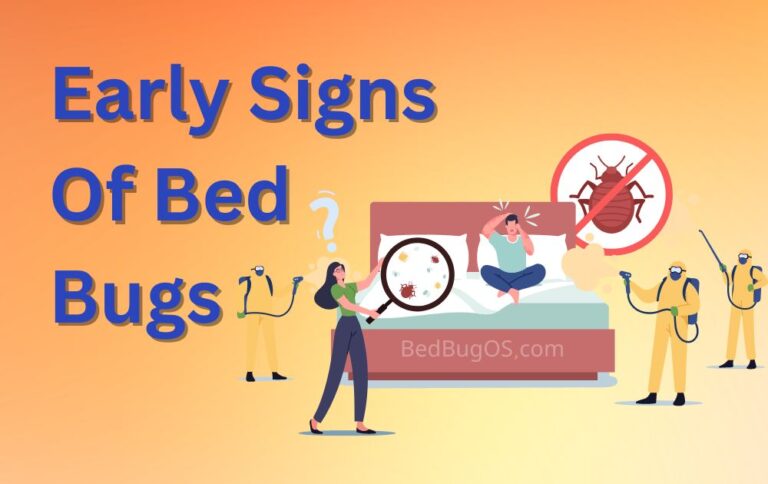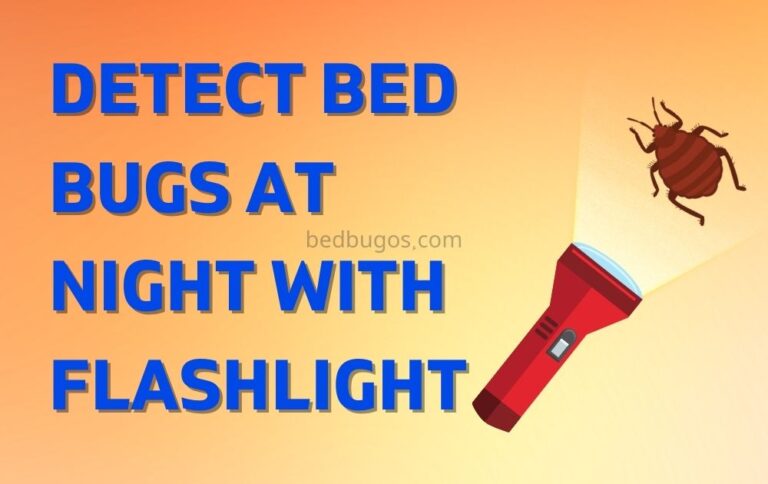What Scent Do Bed Bugs Hate? [5 Best Scents]

Bed bugs are one of the most feared insects that invade homes worldwide. They’re tough to get rid of, and their bites leave itchy, red marks on the skin. But did you know, What Scents Do Bed Bugs Hate? If you’re wondering what that scent is, you’re in the right place.
But what makes lavender so effective in repelling bed bugs? How can you use lavender to keep these pesky insects away from your home? In this article, we’ll explore the science behind lavender’s repellent properties and provide you with practical tips on how to use it to keep bed bugs out of your life. So, without further ado, let’s jump into the world of bed bug repellents and explore the power of lavender!
The answer is simple: Bed bugs hate the smell of lavender. Yes, you read that right. Lavender, a fragrant flower that’s commonly used in perfumes, soaps, and air fresheners, is an excellent bed bug repellent. According to experts, the strong aroma of lavender essential oil is enough to keep bed bugs at bay.
What Scents Do Bed Bugs Hate?
One way to help prevent a bed bug infestation or to get rid of an existing one is to use scents that bed bugs dislike. Here are some scents that have been found to repel bed bugs:
- Lavender: Lavender is a popular scent for its calming and relaxing properties, but it may also help to keep bed bugs at bay. Lavender oil has been shown to be toxic to bed bugs in laboratory studies, and it has a strong, pleasant aroma that can help mask the scent of carbon dioxide, which attracts bed bugs.
- Peppermint: Peppermint is another scent that bed bugs seem to dislike. Peppermint oil has been shown to be toxic to bed bugs in laboratory studies, and it has a strong, refreshing aroma that can help mask the scent of carbon dioxide.
- Eucalyptus: Eucalyptus is a strong, refreshing scent that may also help to repel bed bugs. Eucalyptus oil has been shown to be toxic to bed bugs in laboratory studies, and it has a distinct, pleasant aroma.
- Citrus: Many people find the scent of citrus fruits, such as lemons, oranges, and grapefruits, to be refreshing and invigorating. These scents may also help to repel bed bugs, as citrus oils have been shown to be toxic to bed bugs in laboratory studies.
- Cloves: Cloves are a spice commonly used in cooking, and they have a strong, pungent aroma. Clove oil has been shown to be toxic to bed bugs in laboratory studies, and the scent of cloves may help to repel these pests.
How to Use Scent to Get Rid of Bed Bugs?
Now that you know what scent bed bugs hate, here’s how you can use them to get rid of these pesky pests:
- Make sachets – You can make sachets using lavender, peppermint, eucalyptus, or any other scent bed bugs hate. Place these sachets around your bed, furniture, and other areas where bed bugs may be hiding. The scent will repel bed bugs, and they will not come near your bed or furniture.
- Use sprays – You can make a spray using essential oils and water. Mix a few drops of essential oil with water in a spray bottle and spray it around your bed and furniture. This will repel bed bugs, and they will not come near your bed or furniture.
- Use diffusers – You can use a diffuser to diffuse essential oils around your bed and furniture. This will create a pleasant and relaxing aroma, and at the same time, repel bed bugs.
What kills bed bugs permanently?
Bed bugs are resilient insects that can survive for months without feeding. Killing bed bugs permanently requires a multi-step approach, including:
- Heat treatment: Bed bugs are killed at temperatures above 120°F, so using heat treatment can effectively kill bed bugs and their eggs.
- Pesticides: Chemical pesticides can be effective in killing bed bugs, but they should only be used by licensed professionals.
- Vacuuming: Vacuuming your bed and furniture regularly can help remove bed bugs and their eggs.
- Steam cleaning: Steam cleaning can be used to kill bed bugs and their eggs on surfaces that cannot be treated with heat or pesticides, such as curtains and upholstery.
- Diatomaceous earth: Diatomaceous earth is a powder made from the fossilized remains of diatoms, which can be used to kill bed bugs by dehydrating them.
- Cold treatment: Bed bugs can also be killed by exposing them to temperatures below 0°F, which can be achieved by freezing infested items.
- Encasements: Using bed bug encasements on your mattress and box spring can prevent bed bugs from infesting your bed and can also trap any bed bugs already present inside the encasement.
FAQ’s
Tea tree oil is a natural essential oil that comes from the leaves of the tea tree plant. It has a strong, distinctive scent and is known for its antimicrobial properties. Tea tree oil has been found to be effective in repelling bed bugs due to its strong scent, which bed bugs find unpleasant. When bed bugs are exposed to tea tree oil, it disrupts their nervous system and makes it difficult for them to locate their prey.
Tea tree oil is generally safe to use around people and pets, as long as it is properly diluted. It should never be used at full strength, as it can be irritating to the skin and mucous membranes. When using tea tree oil, it’s important to follow the instructions carefully and use it only as directed. Some people may be sensitive to tea tree oil, so it’s a good idea to do a patch test before using it on larger areas of the skin.
While tea tree oil can be effective in repelling bed bugs, it is not likely to completely eliminate an infestation on its own. Bed bug infestations are notoriously difficult to get rid of and often require a combination of treatments to be successful.
Wrapping It Up:
Scents such as lavender, peppermint, eucalyptus, citrus, and cloves may help to repel or deter bed bugs. While these scents can be helpful in preventing or getting rid of an infestation, they should not be relied upon as a sole solution. The best way to prevent a bed bug infestation is to practice good hygiene and to regularly inspect your home for signs of these pests. If you do suspect a bed bug infestation, it’s important to seek professional help to ensure that the problem is properly addressed.

![16 Reasons : Why Would Bed Bugs Be In The Bathroom ? [Explained]](https://lyssfits.com/wp-content/uploads/2022/12/16-Reasons-Why-Would-Bed-Bugs-Be-In-The-Bathroom-Explained-768x484.jpg)



![Does Rubbing Alcohol Kill Bed Bugs? [Explained]](https://lyssfits.com/wp-content/uploads/2023/07/Does-Alcohol-kill-bed-bugs-768x483.png)
![10 Bugs That Look Like Bed Bugs [Compare With Others]](https://lyssfits.com/wp-content/uploads/2023/01/10-Bugs-That-Look-Like-Bed-Bugs-Dont-Be-Fooled-768x484.jpg)